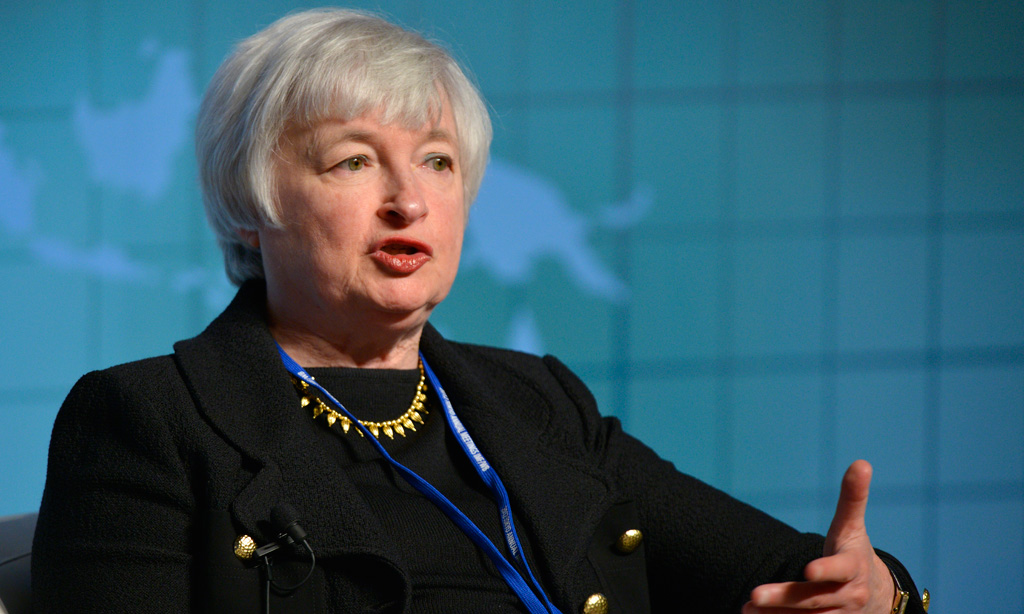On December 17th the Federal Reserve’s FOMC released its meeting statement, forecast and held a press conference for chair Yellen. The Fed kept up its data dependent commitment to raise interest rates, but affirmed to be patient when deciding to do so. Janet Yellen once again reiterated that the decision is entirely data dependent. Meaning if the data isn’t strong enough, the committee is not incorrect in their current forward guidance policy. This forward guidance policy of informing the markets vaguely what the FOMC will do in the coming months is an attempt to instill confidence into a shaky financial world.
The Fed included their comments and projections on the current low inflation rates of 2014. Chair Yellen saw low inflation as a potential danger to the economy, but yet most analysts still expect the Fed to raise rates in 2015. This may prove to be a large misunderstanding. The Fed has said numerous times that it is imperative to prevent deflation from taking a grip on the economy. Even the head of the IMF, Christine Lagarde says, “If inflation is the genie, deflation is the ogre that must be fought decisively.” Her statement is interpreted as meaning inflation is like a genie, once you let it out of the bottle it is hard to get it back in. Deflation on the other hand is a much more dangerous and deadly ogre that can also have terrible effects. Central bankers currently have a strategy for fighting ogres. The plan is loose monetary policy and money supply expansion. But raising rates is exactly the opposite of the ogre fighting remedy, since they are instead tightening monetary policy; so in theory it’s much more like ogre food.
Unless the Federal Reserve wants to accelerate the natural deflation, which would accomplish the complete opposite goal of its last several policies, then raising rates now or in six months could bring the markets back to a point like was seen in 2008. The world is only starting to experience a large deflationary pull due to low oil prices and its effect on energy businesses and lending institutions. If the plunge in oil causes a crisis to spill over into other markets, which is a high probability if oil prices stay low for a considerable time, then the Fed will have even more low inflation, if not outright deflation to deal with. Raising rates just doesn’t make sense in a deflationary world, when the thing you are trying to prevent is a deflationary spiral. In fact, I am going to call the Fed’s bluff here.
With the New Year upon us, it is the time where many people make unreasonable goals for themselves which none the less end up falling through by February. Like everyone else, the Fed has a New Year’s resolution. It happens to be very much like the popular, going on a diet resolution, but this time is a little bit different. The Fed’s resolution is to go on a diet starting in about six months. It could be May or June, or even September, but their New Year’s resolution is to go on that diet. If a friend told you the same thing, you might be pretty skeptical about. Why don’t they just start it now? Well that’s probably because they aren’t going to go on a diet at all.
The Fed is not raising raise rates now, and even according to their own actual statistical evidence, they won’t be able to in six months. The Fed downwardly revised their PCE Inflation expectation for 2015, and that figure is even lower than the “low inflation” seen in 2014! If low inflation is a problem, then how can they move forward?
The Fed expects deflation, but plans on raising rates; that’s nonsense. Not only will the Fed not raise rates in 2015, they may even restart Quantitative Easing, in the latter half of the year, especially if a crisis brews in the oil, housing or financial sectors. In this New Year, the remaining hawkish members of the Board of Governors are scheduled to be replaced with more dovish leaders. With the most dovish Chairperson in the history of the Federal Reserve and a Board of Governors filled with doves, the Fed will certainly be more than “patient” in raising rates. This situation reminds me a lot of my Great Aunt Thelma who would often say “I’m going on a diet on Tuesday.” Tuesday would roll around and if you asked about her diet she’d exclaim with a smirk “I didn’t say what Tuesday!”
Analysis by Andrew Gehrig

